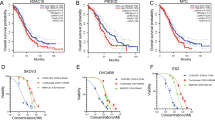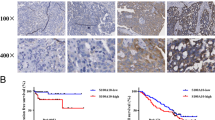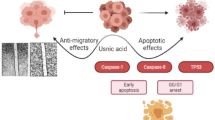Abstract
This research was conducted to study the role of MCL1 in ovarian adenocarcinoma cell death and survival as well as chemosensitivity to sabutoclax. Both in vitro and in vivo assays including qRT-PCR, Western blot, CCK-8, caspase 3/7 activation, colony foci formation assay and xenograft assay were conducted. Except for the xenograft assay, the other experiments were conducted at the cellular level and they were carried out to assess cell activities such as viability, programmed death and proliferation. SKOV3 and OVCAR3 cell lines were used as the cell models for all experiments. It was proved that MCL1 was overexpressed in ovarian adenocarcinoma (tissues and cells) at RNA and protein levels. MCL1 knockdown was also discovered to suppress the viability and proliferation of ovarian adenocarcinoma cells in vivo and in vitro. Lastly, it was found that MCL1 knockdown significantly promoted ovarian carcinoma cell death and the sensitivity to sabutoclax. Thus, we concluded that MCL1 acted as a cancer facilitator in ovarian adenocarcinoma and it is also a suppressor of sabutoclax sensitivity.



Similar content being viewed by others
References
Allen TD, Zhu CQ, Jones KD, Yanagawa N, Tsao MS, Bishop JM (2011) Interaction between MYC and MCL1 in the genesis and outcome of non-small-cell lung cancer. Cancer Res 71:2212–2221
Arnold JM, Huggard PR, Cummings M, Ramm GA, Chenevix-Trench G (2005) Reduced expression of chemokine (C-C motif) ligand-2 (CCL2) in ovarian adenocarcinoma. Br J Cancer 92:2024–2031
Bonnefond ML, Lambert B, Giffard F, Abeilard E, Brotin E, Louis MH, Gueye MS, Gauduchon P, Poulain L, N'Diaye M (2015) Calcium signals inhibition sensitizes ovarian carcinoma cells to anti-Bcl-xL strategies through Mcl-1 down-regulation. Apoptosis 20:535–550
Campbell KJ, Dhayade S, Ferrari N, Sims AH, Johnson E, Mason SM, Dickson A, Ryan KM, Kalna G, Edwards J, Tait SWG, Blyth K (2018) MCL-1 is a prognostic indicator and drug target in breast cancer. Cell Death Dis 9:19
Correa DD, Root JC, Kryza-Lacombe M, Mehta M, Karimi S, Hensley ML, Relkin N (2017) Brain structure and function in patients with ovarian cancer treated with first-line chemotherapy: a pilot study. Brain Imaging Behav 11:1652–1663
Dai H, Meng XW, Kaufmann SH (2016) Mitochondrial apoptosis and BH3 mimetics. F1000Res 5:2804
Dash R, Azab B, Quinn BA, Shen X, Wang XY, Das SK, Rahmani M, Wei J, Hedvat M, Dent P, Dmitriev IP, Curiel DT, Grant S, Wu B, Stebbins JL, Pellecchia M, Reed JC, Sarkar D, Fisher PB (2011) Apogossypol derivative BI-97C1 (Sabutoclax) targeting Mcl-1 sensitizes prostate cancer cells to mda-7/IL-24-mediated toxicity. Proc Natl Acad Sci U S A 108:8785–8790
Denoyelle C, Lambert B, Meryet-Figuiere M, Vigneron N, Brotin E, Lecerf C, Abeilard E, Giffard F, Louis MH, Gauduchon P, Juin P, Poulain L (2014) miR-491-5p-induced apoptosis in ovarian carcinoma depends on the direct inhibition of both BCL-XL and EGFR leading to BIM activation. Cell Death Dis 5:e1445
Englert-Golon M, Burchardt B, Budny B, Debicki S, Majchrzycka B, Wrotkowska E, Jasinski P, Ziemnicka K, Slopien R, Ruchala M, Sajdak S (2017) Genomic markers of ovarian adenocarcinoma and its relevancy to the effectiveness of chemotherapy. Oncol Lett 14:3401–3414
Goncharenko-Khaider N, Matte I, Lane D, Rancourt C, Piche A (2012) Ovarian cancer ascites increase Mcl-1 expression in tumor cells through ERK1/2-Elk-1 signaling to attenuate TRAIL-induced apoptosis. Mol Cancer 11:84
Habata S, Iwasaki M, Sugio A, Suzuki M, Tamate M, Satohisa S, Tanaka R, Saito T (2016) BAG3-mediated Mcl-1 stabilization contributes to drug resistance via interaction with USP9X in ovarian cancer. Int J Oncol 49:402–410
Jackson RS II, Placzek W, Fernandez A, Ziaee S, Chu CY, Wei J, Stebbins J, Kitada S, Fritz G, Reed JC, Chung LW, Pellecchia M, Bhowmick NA (2012) Sabutoclax, a Mcl-1 antagonist, inhibits tumorigenesis in transgenic mouse and human xenograft models of prostate cancer. Neoplasia 14:656–665
Jayson GC, Kohn EC, Kitchener HC, Ledermann JA (2014) Ovarian cancer. Lancet 384:1376–1388
Koshiyama M, Matsumura N, Konishi I (2017) Subtypes of ovarian cancer and ovarian cancer screening. Diagnostics (Basel) 7(1)
Maji S, Samal SK, Pattanaik L, Panda S, Quinn BA, Das SK, Sarkar D, Pellecchia M, Fisher PB, Dash R (2015) Mcl-1 is an important therapeutic target for oral squamous cell carcinomas. Oncotarget 6:16623–16637
Merino D, Whittle JR, Vaillant F, Serrano A, Gong JN, Giner G, Maragno AL, Chanrion M, Schneider E, Pal B, Li X, Dewson G, Grasel J, Liu K, Lalaoui N, Segal D, Herold MJ, Huang DCS, Smyth GK, Geneste O, Lessene G, Visvader JE, Lindeman GJ (2017) Synergistic action of the MCL-1 inhibitor S63845 with current therapies in preclinical models of triple-negative and HER2-amplified breast cancer. Sci Transl Med 9(401)
Opydo-Chanek M, Gonzalo O, Marzo I (2017) Multifaceted anticancer activity of BH3 mimetics: current evidence and future prospects. Biochem Pharmacol 136:12–23
Polom K, Roviello G, Generali D, Marano L, Petrioli R, Marsili S, Caputo E, Marrelli D, Roviello F (2016) Cytoreductive surgery and hyperthermic intraperitoneal chemotherapy for treatment of ovarian cancer. Int J Hyperthermia 32:298–310
Sarkar S, Pradhan A, Das SK, Emdad L, Sarkar D, Pellecchia M, Fisher PB (2016) Novel therapy of prostate cancer employing a combination of viral-based immunotherapy and a small molecule BH3 mimetic. Oncoimmunology 5:e1078059
Shi T, Wang P, Xie C, Yin S, Shi D, Wei C, Tang W, Jiang R, Cheng X, Wei Q, Wang Q, Zang R (2017) BRCA1 and BRCA2 mutations in ovarian cancer patients from China: ethnic-related mutations in BRCA1 associated with an increased risk of ovarian cancer. Int J Cancer 140:2051–2059
Sugio A, Iwasaki M, Habata S, Mariya T, Suzuki M, Osogami H, Tamate M, Tanaka R, Saito T (2014) BAG3 upregulates Mcl-1 through downregulation of miR-29b to induce anticancer drug resistance in ovarian cancer. Gynecol Oncol 134:615–623
Thomas S, Quinn BA, Das SK, Dash R, Emdad L, Dasgupta S, Wang XY, Dent P, Reed JC, Pellecchia M, Sarkar D, Fisher PB (2013) Targeting the Bcl-2 family for cancer therapy. Expert Opin Ther Targets 17:61–75
Varadarajan S, Butterworth M, Wei J, Pellecchia M, Dinsdale D, Cohen GM (2013) Sabutoclax (BI97C1) and BI112D1, putative inhibitors of MCL-1, induce mitochondrial fragmentation either upstream of or independent of apoptosis. Neoplasia 15:568–578
Vershinin Z, Feldman M, Chen A, Levy D (2016) PAK4 methylation by SETD6 promotes the activation of the Wnt/beta-catenin pathway. J Biol Chem 291:6786–6795
Wang X, Chen Z, Li X, Jiang ZK, Zhao YQ, Ping FF (2017) Geraniin suppresses ovarian cancer growth through inhibition of NF-κB activation and downregulation of Mcl-1 expression. J Biochem Mol Toxicol 31(9)
Whicker ME, Lin ZP, Hanna R, Sartorelli AC, Ratner ES (2016) MK-2206 sensitizes BRCA-deficient epithelial ovarian adenocarcinoma to cisplatin and olaparib. BMC Cancer 16:550
Author information
Authors and Affiliations
Corresponding author
Ethics declarations
Conflict of interest
The authors declare that they have no conflict of interest.
Ethical approval
The ethics committee of the Yantai Affiliated Hospital, Binzhou Medical College, approved this research.
Additional information
Publisher’s note
Springer Nature remains neutral with regard to jurisdictional claims in published maps and institutional affiliations.
Rights and permissions
About this article
Cite this article
Li, C., Song, Y. & Li, P. MCL1 regulates cell death, tumor growth and chemosensitivity to sabutoclax in ovarian adenocarcinoma. Cell Tissue Res 379, 625–633 (2020). https://doi.org/10.1007/s00441-019-03105-8
Received:
Accepted:
Published:
Issue Date:
DOI: https://doi.org/10.1007/s00441-019-03105-8




